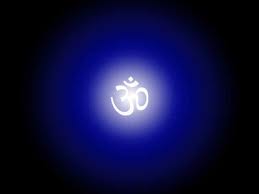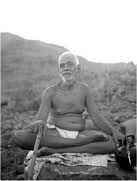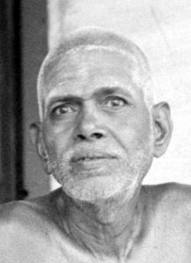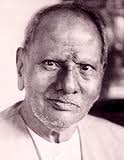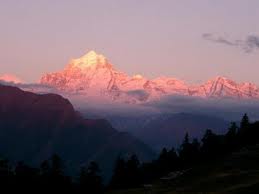It is important not to confuse book learning with actual realization. The scriptures can lead the way, but true Self-knowledge comes only from within. Even the greatest of scriptures will not make one God-realized without contemplating the meaning with a calm mind and sharp intellect – and this only with dogged perseverance and persistence over time. It is for this reason that practice is critical. A common saying of Paramahamsa Hariharananda and Sri Swami Sivananda was, “an ounce of practice is better than tons of theory.” Even the followers of the path of jnana (knowledge), though they may choose to forsake all formal meditation or pranayama, must sit still and practice self-inquiry (“who am I?”). They must silently trace their footsteps back to the unconditioned, silent Witness which is pure Awareness – timeless, ageless and eternal.
But even the jnani must be very careful. It is easy to confuse a little progress via scriptural study and contemplation of the Self with actual Self-knowledge. There are many who read and study for a short time before donning an ocher robe or grabbing a begging bowl after allowing their locks to mat. They are deluded by their own ego and misguide others in the process.
Sri Ramakrishna was once asked by Bankim Chandra, a great Bengali literary figure, why he did not formally preach. Sri Ramakrishna responded:
“Preaching? It is only a man’s vanity that makes him think of preaching. A man is but an insignificant creature. It is God alone who will preach — God who has created the sun and moon and so illumined the universe. Is preaching such a trifling affair? You cannot preach unless God reveals Himself to you and gives you the command to preach. Of course, no one can stop you from preaching. You haven’t received the command, but still you cry yourself hoarse. People will listen to you a couple of days and then forget all about it. It is like any other sensation: as long as you speak, people will say, ‘Ah! He speaks well’; and the moment you stop, everything will disappear.

“The milk in the pot hisses and swells as long as there is heat under it. Take away the heat, and the milk will quiet down as before.
“One must increase one’s strength by sadhana (spiritual practice); otherwise one cannot preach. As the proverb goes: ‘You have no room to sleep yourself and you invite a friend to sleep with you.’ There is no place for you to lie down and you say: ‘Come, friend! Come and lie down with me.’ (laughter)
The Gospel of Sri Ramakrishna, by Mahendranath Gupta
Swami Sri Yukteswar Giri Maharaj, Paramahansa Yogananda’s guru, was a great sage and Kriya Yogi known for his uncompromising character and strict adherence to discipline. He was also known for being a tough teacher, yet one whose loyalty, love, and care for those disciples who sought his spiritual guidance was unwavering.

Yogananada related an incident in which an arrogant pundit proudly displayed his scriptural knowledge one day in the ashram:
“A celebrated scholar received a similar jolt. It came during his first visit to the ashram. The rafters resounded as the guest recited passages from the Mahabharata, Upanishads, and bhasyas (commentaries) of Shankara.
“I am waiting to hear you.” Sri Yukteswar’s tone was inquiring, as though silence had reigned. The pundit was puzzled.
“Quotations there have been in superabundance.” Master’s words convulsed me with mirth, as I squatted in my corner a respectful distance from the visitor.” But what original commentary can you supply, from the uniqueness of your particular life? In what ways have these timeless truths renovated your nature? Are you content to be a hollow victrola, mechanically repeating the words of other men?”
“I give up!” The scholar’s chagrin was comical.” I have no inner realization.”
For the first time, perhaps, he understood that discerning placement of a comma does not atone for a spiritual coma.
“These bloodless pedants smelly unduly of the lamp,” my guru remarked after the departure of the chastened one.” They consider philosophy to be a gentle intellectual setting-up exercise. Their elevated thoughts are carefully unrelated either to the crudity of outward action or to any scourging inner discipline!”
Master stressed on other occasions the futility of mere book learning.
“Do not confuse understanding with a larger vocabulary,” he remarked.” Sacred writings are beneficial in simulating desire for inward realization, if one stanza at a time is slowly assimilated. Otherwise, continual intellectual study may result in vanity, false satisfaction, and undigested knowledge.”
Sri Yukteswar related one of his own experiences in scriptural edification. The scene was a forest hermitage in eastern Bengal, where he observed the procedure of a reowned teacher, Dabru Ballav. His method, at once simple and difficult, was common in ancient India.
Dabru Ballav had gathered his disciples around him in the sylvan solitudes. The holy Bhagavad Gita was open before them. Steadfastly they looked at one passage for half an hour, then closed their eyes. Another half hour slipped away. The master gave a brief comment. Motionless,they meditated again for an hour. Finally the guru spoke.
“Do you now understand the stanza?”
“Yes,sir.” One in the group ventured this assertion.
“No, not fully. Seek the spiritual vitality that has given these words the power to rejuvenate India century after century.” Another hour passed in silence. The master dismissed the students, and turned to Sri Yukteswar.
“Do you know the Bhagavad Gita?”
“No sir, not really; though my eyes and mind have run through its pages many times.”
“Hundreds have replied to me differently!” The great sage smiled at Master in blessing.” If one busies himself with an outer display of scriptural wealth, what time is left for silent inward diving after the priceless pearls?”
Sri Yukteswar directed the study of his own disciples by the same intensive method of one-pointedness.” Wisdom is not assimilated with the eyes, but with the atoms,” he said.” When your conviction of truth is not merely in your brain but in your being, you may diffidently vouch for its meaning.” He discouraged any tendency a student might have to consider book knowledge a necessary step to spiritual realization.
“The rishis wrote in one sentence profundities that commentating scholars busy themselves over for generations,” he said.” Endless literary controversys for sluggard minds. What more quickly liberating thought than ‘God is’ —nay, ‘God’?”
Autobiography of a Yogi, by Paramahansa Yogananda (Chapter 12: Years in My Master’s Hermitage)
The Sanskrit word muni refers to an ascetic, yogi, or monk who has taken a vow of silence (or is habitually silent). Indeed, many of the world’s greatest yogis and spiritual teachers taught mostly in silence. Their only pulpit is Consciousness which, being all-pervading, transcends all space-time restrictions. Mahamuni Babaji Maharaj, Trailanga Swami, and Ramana Maharshi are only a few examples of such exalted beings whose spiritual influence and vibrations are “heard” still today and continue to exert a benign influence, not only throughout the community in which they lived, but around the planet and into the cosmos.
